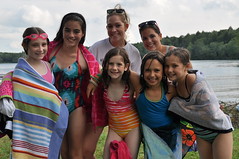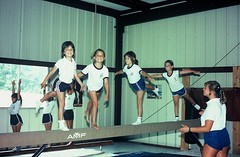 Do you know the history of camping? Most people don’t and it is too bad. It’s an interesting story and I’m happy to give you my take on it.
Do you know the history of camping? Most people don’t and it is too bad. It’s an interesting story and I’m happy to give you my take on it.
Back in the early 1900’s, several individuals and families, seeing the swelling slums in the northeastern cities, began to think of ways to get kids back to nature. Striking out from New York and Boston, these camp pioneers found pieces of land with lakes, trees, clean air, and a lot of space on which to build the first ‘residential camps’ in the US.
Mostly school teachers and coaches, these early camp leaders built relationships with families who chose to send their children to camp. The founding purpose of camp was to provide an environment of wholesome activity in which the values of independence, teamwork, gratitude, and community were transmitted, both overtly and subtly, to children.
Looking back at over 100 years of organized camping, I think these early professionals were on to something. Camping is no longer just for children from the northeastern major metro areas, though they still make up a large proportion of campers. Camp has spread across the country and world and now is a big part of lots of peoples’ lives.
longer just for children from the northeastern major metro areas, though they still make up a large proportion of campers. Camp has spread across the country and world and now is a big part of lots of peoples’ lives.
There are a lot of reasons why camping has thrived over the years. The main reasons, at least in my opinion, are the relationships built between campers and the staff at camp, being a part of something special, and the skills (physical, psychological, and emotional) that are developed. When you combine value-driven adults who are eager to lead with campers excited to learn, grow, and build new friendships, you’ve got an incredible start for creating a remarkable camp experience.
Can’t wait for camp!
Cole Kelly
Director, Camp Weequahic

 Moving from one year towards the next has me thinking about summer camp in the past and future. For over a century, summer camps in the United States have helped millions of American children develop and grow as well as start negotiating their worlds outside of immediate families and neighborhoods. At first, a small number of elite camps only served boys, and primarily Protestant boys at that — but by the time the prosperous years after World War II were in full swing, approximately one in six American children went to camp, usually for eight weeks at a time. Throughout the 20th century, camps changed to serve all children including varying camp lengths, welcoming girls, and opening their gates to all races.
Moving from one year towards the next has me thinking about summer camp in the past and future. For over a century, summer camps in the United States have helped millions of American children develop and grow as well as start negotiating their worlds outside of immediate families and neighborhoods. At first, a small number of elite camps only served boys, and primarily Protestant boys at that — but by the time the prosperous years after World War II were in full swing, approximately one in six American children went to camp, usually for eight weeks at a time. Throughout the 20th century, camps changed to serve all children including varying camp lengths, welcoming girls, and opening their gates to all races. As summer camps have become more inclusive, the world that children experience both in the United States and globally has also become very different. Many children have access to a much broader world through travel, moving images, or other technologies, but some things just haven’t changed. For instance, our pre-college age identities are still informed by interactions with peers and people connected to our individual worlds, directly translating to the people we make direct contact with. While community is still central to human development, many of our daily communities are no longer bound by neighborhood blocks tied to local shared institutions and celebrations. Our families and extended social circles filter across state, nation and even electronic borders.
As summer camps have become more inclusive, the world that children experience both in the United States and globally has also become very different. Many children have access to a much broader world through travel, moving images, or other technologies, but some things just haven’t changed. For instance, our pre-college age identities are still informed by interactions with peers and people connected to our individual worlds, directly translating to the people we make direct contact with. While community is still central to human development, many of our daily communities are no longer bound by neighborhood blocks tied to local shared institutions and celebrations. Our families and extended social circles filter across state, nation and even electronic borders. Past, present and future campers are all part of a lively and creative shared community where remembering a song, a person, an event, a skit, food or a poignant moment can instantly transport peers back to camp. So, what you would add to a time capsule to “capture” the timeless spirit of camp and why? We’d love to hear what alumni and present campers would include in an electronic time capsule, so get scanning or writing up those memories and lessons learned! If you’re not sure how to get started, ask questions in the comments below!
Past, present and future campers are all part of a lively and creative shared community where remembering a song, a person, an event, a skit, food or a poignant moment can instantly transport peers back to camp. So, what you would add to a time capsule to “capture” the timeless spirit of camp and why? We’d love to hear what alumni and present campers would include in an electronic time capsule, so get scanning or writing up those memories and lessons learned! If you’re not sure how to get started, ask questions in the comments below!